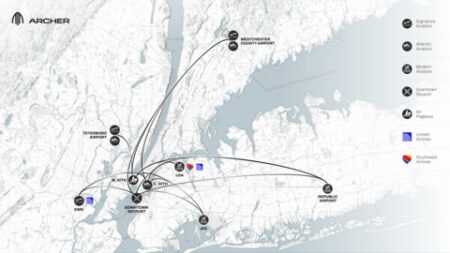Global Medical Response (GMR) is embarking on a significant fleet expansion aimed at addressing the critical healthcare access challenges in rural America while also modernizing its air medical services nationwide.
As part of its ongoing commitment to delivering lifesaving care, this investment in new aircraft will enhance GMR’s ability to service patients in remote, underserved regions, ensuring that advanced medical care is accessible whenever and wherever it’s needed most.
“At GMR, we understand the vital role air ambulances play in providing rapid, lifesaving care across the globe—especially in rural areas where access to healthcare is severely limited,” said GMR chief executive officer Nick Loporcaro.
“Over the past decade, more than 130 rural hospitals have closed , leaving vast regions without essential services. This is not just an inconvenience; it’s a life-threatening situation for millions of Americans who now face long travel times to the nearest hospital. This fleet expansion reflects our unwavering commitment to ensuring that, no matter where patients are, we can be there when every moment matters.”
Over the next three years, GMR will invest in 43 new helicopters with options for 33 more.
GMR made firm commitments to purchase 28 Airbus helicopters consisting of the H125, H130, H135, and H145.
The Airbus H135 and H145 models are equipped with the advanced Helionix avionics suite.
GMR also made firm commitments for 15 Bell 407GXi, with single-pilot IFR capability, which supports reliable performance and offers the speed and agility essential for time-sensitive medical missions.
These air ambulance platforms from Airbus and Bell enhance operational safety through intuitive controls and refined navigation, making them ideal for the more challenging environments our teams may encounter on lifesaving missions.
Another key element of the expansion is the addition of eight King Air B350 twin turboprop aircraft, which will be operated by GMR’s Guardian Flight division in Alaska. The King Air B350 offers immediate response and improves airport accessibility in serving the remote and often hard-to-reach populations across the state.
“These aircraft will be the fastest turboprops in the state, providing us with unmatched capabilities to better serve the communities we care for,” said Loporcaro. “With this new fleet, we’ll be able to reach more communities and get patients to the care they need more effectively.”
In addition, GMR’s AirMed division is investing in two long-range Challenger 605 jets to expand international and domestic medical repatriation for critically ill and injured patients.
These jets will ensure patients receive timely access to specialized care, whether in the U.S. or abroad. Through its AirMedCare Network, GMR also offers membership programs that cover emergency and non-emergency air transport. With over 3 million enrollees, members are protected from unexpected out-of-pocket costs during medical emergencies, even when insurance falls short.
GMR operates close to 400 air base locations responding to all 50 U.S. states and internationally, supporting emergency medical transport, disaster response, and critical care missions.
Last year, GMR handled nearly six million patient encounters, many of which were in rural or underserved areas where healthcare access is increasingly limited.
“Expanding our fleet allows us to bridge gaps in healthcare access,” said Loporcaro. “This investment reinforces our commitment to being there when every second counts, ensuring patients have rapid access to advanced medical care, no matter where they are.”





